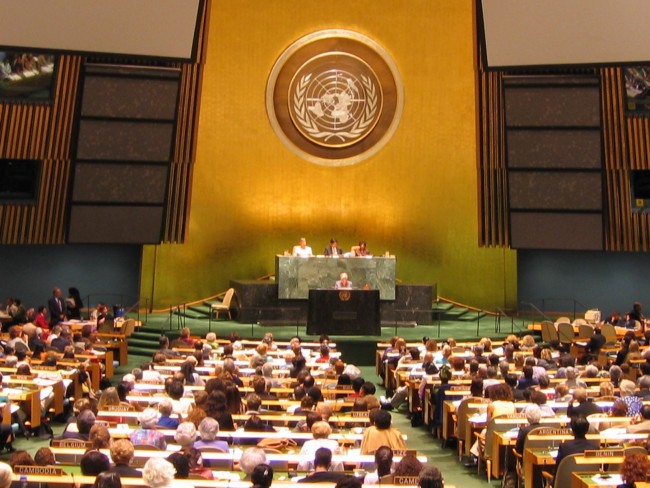Let the UN look at itself
 The U.S. is being judged by the United Nations Human Rights Council for our record and performance on human rights protections. According to what? The guidelines spelled out in the 1948 Universal Declaration of Human Rights. Or so they say. It’s not really as pristine a cause as that. It’s providing a forum for tyrants to blast the U.S.
The U.S. is being judged by the United Nations Human Rights Council for our record and performance on human rights protections. According to what? The guidelines spelled out in the 1948 Universal Declaration of Human Rights. Or so they say. It’s not really as pristine a cause as that. It’s providing a forum for tyrants to blast the U.S.
I am not making this up. First I learned of it was when I interviewed the president of a UN watchdog group on radio this week going through the latest agenda activists are pursuing through that world body. Then the Times carried this op-ed piece confidently saying, more or less, ‘Bring it.’
The United States has nothing to fear from such criticism. Our society is an open one in which issues are exposed to widespread public scrutiny, and we can be confident that nothing truthful will be said in Geneva that has not been said before in America.
Well, yes. And the Obama administration believed themselves ready for that when they welcomed the criticism.
Anticipating harsh words from traditional adversaries such as Cuba, Venezuela and Iran, [U.S. Assistant Secretary of State Esther] Brimmer took a jibe at those countries’ restrictions on freedom of speech by telling the 47-nation council that the Obama administration was used to hearing criticism from its own citizens at home, in newspapers, blogs and talk radio shows.
So, there’s some parity here?
Among the first to challenge Washington was Russia, which urged the U.S. to abolish the death penalty. Indonesia, the world’s most populous Muslim nation, called on Washington to better promote religious tolerance, and Mexico complained that racial profiling had become a common practice in some U.S. states.
China was among dozens of countries urging the U.S. to ratify key international conventions on the rights of women and children that Washington has signed but Congress has yet to approve.
This is rich. Indonesia lectures us on religious tolerance. Mexico complains about discrimination here. And China lecturing anyone on the rights of women and children?
So the U.S. is now on the defense.
“We acknowledge imperfection,” said Michael Posner, the assistant secretary of state for human rights, adding that while the “glaring original flaw” of slavery had been abolished, the Obama administration was “not satisfied with the status quo.”
That explains a lot.
“Recognition of problems is a first step,” said Antonio M. Ginatta, director of advocacy at New York-based Human Rights Watch.
Which is what Pope Benedict intended in his address to the UN General Assembly in April 2008, on the 60th anniversary of the Universal Declaration of Human Rights. His was a gentle reminder of what that declaration intended, and a notice of how far that body had strayed from its original intent.
…Pope Benedict continued that discussion by re-introducing moral grammar to the United Nations. Whether they understand the language will only become clearer in time, but they’re likely still trying to unpack the message. One week after his visit, however, the president and the press are still talking about the pope, and the impression he left of clarity with charity.
A couple of years hence, how are we doing on that?


0 Comment
Sheila,
I am always impressed by your ability to see and articulate the truth. Thank you.